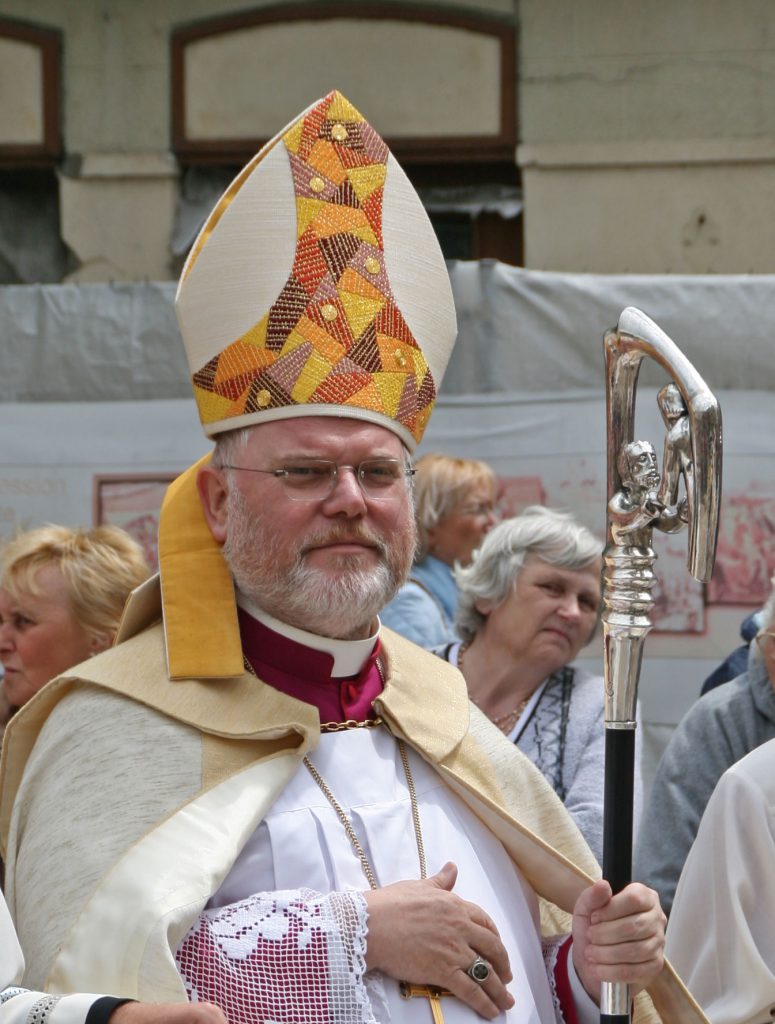
Published March 27, 2019
George Weigel's weekly column The Catholic Difference
Your Eminence:
I noted with interest your recent announcement of a “binding synodal process” during which the Church in Germany will discuss the celibacy of the Latin-rite Catholic priesthood, the Church’s sexual ethic, and clericalism, these being “issues” put on the table by the crisis of clerical sexual abuse.
Perhaps the following questions will help sharpen your discussions.
1) How can the “synodal process” of a local Church produce “binding” results on matters affecting the entire Catholic Church? The Anglican Communion tried this and is now in terminal disarray; the local Anglican churches that took the path of cultural accommodation are comatose. Is this the model you and your fellow-bishops favor?
2) What does the celibacy of priests in the Latin rite have to do with the sexual abuse crisis? Celibacy has no more to do with sexual abuse than marriage has to do with spousal abuse. Empirical studies indicate that most sexual abuse of the young takes place within (typically broken) families; Protestant denominations with a married clergy also suffer from the scourge of sexual abuse; and in any event, marriage is not a crime-prevention program. Is it cynical to imagine that the abuse crisis is now being weaponized to mount an assault on clerical celibacy, what with other artillery having failed to dislodge this ancient Catholic tradition?
3) According to a Catholic News Agency report, you suggested that “the significance of sexuality to personhood has not yet received sufficient attention from the Church.” Really? Has St. John Paul II’s Theology of the Body not been translated into German? Perhaps it has, but it may be too long and complex to have been properly absorbed by German-speaking Catholics. Permit me, then, to draw your attention to pp. 347–358 of Zeuge der Hoffnung (Ferdinand Schoeningh, 2002), the German translation of Witness to Hope, the first volume of my John Paul II biography. There, you and your colleagues will find a summary of the Theology of the Body, including its richly personalistic explanation of the Church’s ethic of human love and its biblically-rooted understanding of celibacy undertaken for the Kingdom of God.
4) You also note that your fellow-bishops “feel…unable to speak on questions of present-day sexual behavior.” That was certainly not the case at the Synods of 2014, 2015, and 2018, where German bishops felt quite able to speak frequently to these questions, albeit in a way that typically mirrored today’s politically-correct fashions. And I’m sure I’m not alone in wondering just when the German episcopate last spoke to “present-day sexual behavior” in a way that promoted the Church’s ethic of human love as life-affirming and ordered to human happiness and fulfillment, at least in the years since its massive dissent from Humanae Vitae (Pope St. Paul VI’s 1968 encyclical on the ethics of family planning). But that, as I understand Pope Francis, is what he is calling us all to do: Witness to, preach, and teach the “Yes” that undergirds everything to which the Church must, in fidelity to both revelation and reason, say “No.”
5) The CNA report also noted that your “synodal process” (which, in a nice tip of the miter to Hegel, you described as a “synodal progression”) would involve consultations with the Central Committee of German Catholics. My dear Cardinal Marx, this is rather like President Trump consulting with Fox News or Speaker Pelosi consulting with the editors of the New York Times. If you’ll pardon the reference to Major Heinrich Strasser in Casablanca, even we blundering Americans know that the ZdK, the Zentralkomitee der deutschen Katholiken, is the schwerpunkt, the spearhead that clears the ground to the far left so that the German bishops can position themselves as the “moderate” or “centrist” force in the German Church. You know, and I know, and everyone else should know that consultations with the ZdK will produce nothing but further attacks on celibacy, further affirmations of current sexual fads, and further deprecations of Humanae Vitae (based, in part, on the ZdK’s evident ignorance of the Theology of the Body and German hostility to John Paul II’s 1993 encyclical on the renovation of Catholic moral theology, Veritatis Splendor).
Your Eminence, the German Church—the Catholicism of my ancestors—is dying. It will not be revitalized by becoming a simulacrum of moribund liberal Protestantism.
I wish you a fruitful Lent and a joyful Easter.
George Weigel is Distinguished Senior Fellow of Washington, D.C.’s Ethics and Public Policy Center, where he holds the William E. Simon Chair in Catholic Studies.











